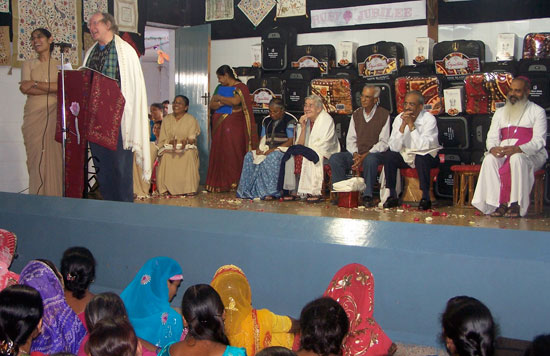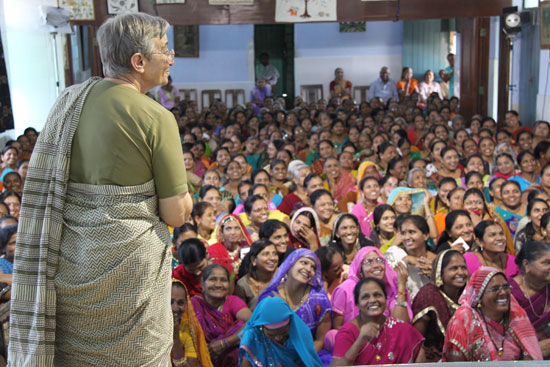|
«FAIR TRADE» : Will this be enough? Some personal reflections and challenges from Roy Scott |
|
|
|
|
After 40 years in «alternative marketing», or what is now often called «fair-trade», Roy Scott offers historical reflections and questions the future |
![]()
![]()
![]()
![]()
![]()
.gif)
|
|
![]()
![]()
December 2010
One Village Front page: Who we are

Roy Scott addresses members at the 40th anniversary of St Mary's Mahila Shikshan Kendra, Ahmedabad, a producers' society which he had helped get started so many years earlier.
One Village remains a major partner for this enterprise that now enables livelihoods for about 500 people in an economically-stretched part of the city.
One Village Community Extra is the principal contributor to the society's producer bonus scheme, enjoyed by all members every year.
Joining the 40 Years celebrations is Thomas Macwan, RC Bishop of Ahmedabad (far right on platform) and Dominican sister Lucia, founder of the project (see her at left below along with members enjoying the celebration address).

![]()

![]()
TOP
![]()
![]()
![]() Top
Top ![]()
![]() Fair trade?
Fair trade?
![]()
![]() Go shopping now!
Go shopping now! ![]()
![]()
![]()
![]()
![]() Bookmark Onevillage.org !
Bookmark Onevillage.org !
![]()
![]()
![]() All pages and products © One Village UK, 1979- All rights reserved
All pages and products © One Village UK, 1979- All rights reserved ![]() ONE VILLAGE CHARLBURY OX7 3SQ UNITED KINGDOM
ONE VILLAGE CHARLBURY OX7 3SQ UNITED KINGDOM ![]()